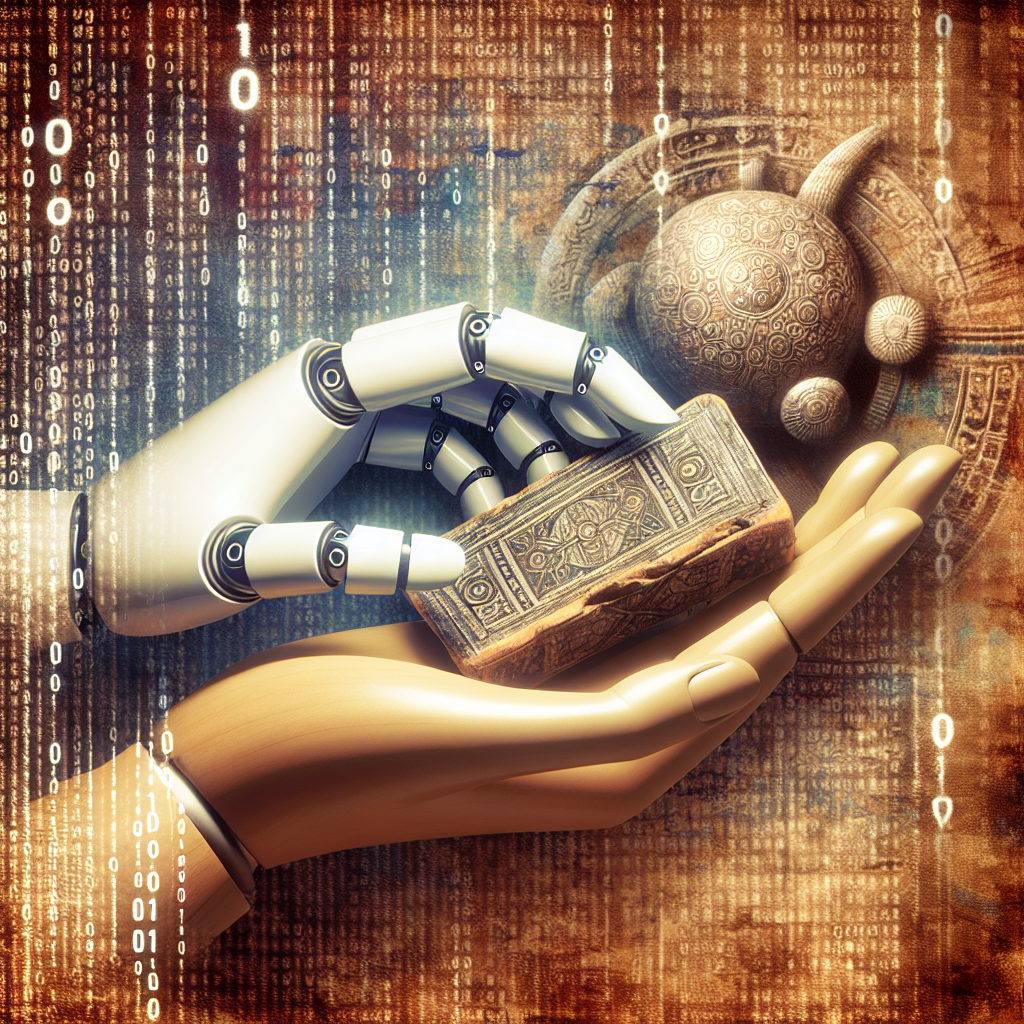In recent years, the field of artificial intelligence (AI) has made significant advancements in various domains, including the preservation of cultural heritage. Ethical AI, in particular, plays a crucial role in ensuring that the cultural heritage of societies is not only safeguarded but also respected and celebrated. In this article, we will explore the intersection of ethical AI and the preservation of cultural heritage, and discuss the challenges and opportunities that come with using AI in this context.
Ethical AI and Cultural Heritage Preservation
Cultural heritage refers to the tangible and intangible aspects of a society’s history and identity, including artifacts, monuments, traditions, languages, and customs. Preserving cultural heritage is vital for maintaining a sense of identity and belonging among communities, as well as for understanding the past and shaping the future. However, the task of preserving cultural heritage is complex and often requires the collaboration of experts from various fields, including historians, archaeologists, anthropologists, and conservationists.
AI technologies have the potential to revolutionize the way cultural heritage is preserved, documented, and shared. For example, AI can be used to analyze and interpret vast amounts of data, such as archaeological findings, historical documents, and cultural artifacts, in a fraction of the time it would take a human expert. AI can also help in the restoration and conservation of cultural heritage sites by predicting potential threats, monitoring environmental conditions, and identifying areas that require intervention.
However, the use of AI in cultural heritage preservation also raises ethical concerns, particularly regarding issues of bias, transparency, accountability, and privacy. For example, AI algorithms can inadvertently perpetuate biases and stereotypes present in historical data, leading to inaccurate or discriminatory interpretations of cultural heritage. Furthermore, the use of AI in cultural heritage preservation raises questions about who has the right to access and control cultural heritage data, and how this data should be used and shared with the public.
Challenges and Opportunities
One of the main challenges of using AI in cultural heritage preservation is the lack of diverse and representative datasets. Historical data often reflects the perspectives and biases of the individuals who collected and curated it, which can lead to skewed or incomplete representations of cultural heritage. To address this challenge, researchers and practitioners must work to create more inclusive and diverse datasets that accurately reflect the cultural heritage of all communities.
Another challenge is the ethical implications of using AI to analyze and interpret cultural heritage data. AI algorithms are often opaque and difficult to interpret, making it challenging to understand how they arrive at their conclusions. This lack of transparency can lead to distrust and skepticism among stakeholders, who may question the validity and accuracy of AI-generated insights. To address this challenge, researchers and practitioners must work to develop more transparent and explainable AI models that can be easily understood and interpreted by non-experts.
Despite these challenges, the use of AI in cultural heritage preservation also presents exciting opportunities for innovation and collaboration. For example, AI can be used to create immersive digital experiences that allow users to explore and interact with cultural heritage sites and artifacts in new and exciting ways. AI can also be used to identify and document previously unknown cultural heritage sites, as well as to analyze and interpret complex data patterns that may reveal new insights into the history and culture of a society.
FAQs
Q: How can AI be used to preserve cultural heritage?
A: AI can be used to analyze and interpret vast amounts of data, such as archaeological findings, historical documents, and cultural artifacts, in a fraction of the time it would take a human expert. AI can also help in the restoration and conservation of cultural heritage sites by predicting potential threats, monitoring environmental conditions, and identifying areas that require intervention.
Q: What are some of the ethical concerns associated with using AI in cultural heritage preservation?
A: Some of the ethical concerns associated with using AI in cultural heritage preservation include issues of bias, transparency, accountability, and privacy. AI algorithms can inadvertently perpetuate biases and stereotypes present in historical data, leading to inaccurate or discriminatory interpretations of cultural heritage. Furthermore, the use of AI in cultural heritage preservation raises questions about who has the right to access and control cultural heritage data, and how this data should be used and shared with the public.
Q: How can researchers and practitioners address the challenges of using AI in cultural heritage preservation?
A: To address the challenges of using AI in cultural heritage preservation, researchers and practitioners must work to create more inclusive and diverse datasets that accurately reflect the cultural heritage of all communities. They must also develop more transparent and explainable AI models that can be easily understood and interpreted by non-experts. Additionally, researchers and practitioners must collaborate with stakeholders, including local communities, policymakers, and cultural heritage experts, to ensure that AI technologies are used in a responsible and ethical manner.
Conclusion
The intersection of ethical AI and the preservation of cultural heritage presents both challenges and opportunities for researchers and practitioners. While AI has the potential to revolutionize the way cultural heritage is preserved, documented, and shared, it also raises important ethical concerns that must be addressed. By working together to create inclusive and diverse datasets, develop transparent and explainable AI models, and collaborate with stakeholders, researchers and practitioners can ensure that AI technologies are used in a responsible and ethical manner to preserve and celebrate the cultural heritage of societies around the world.

